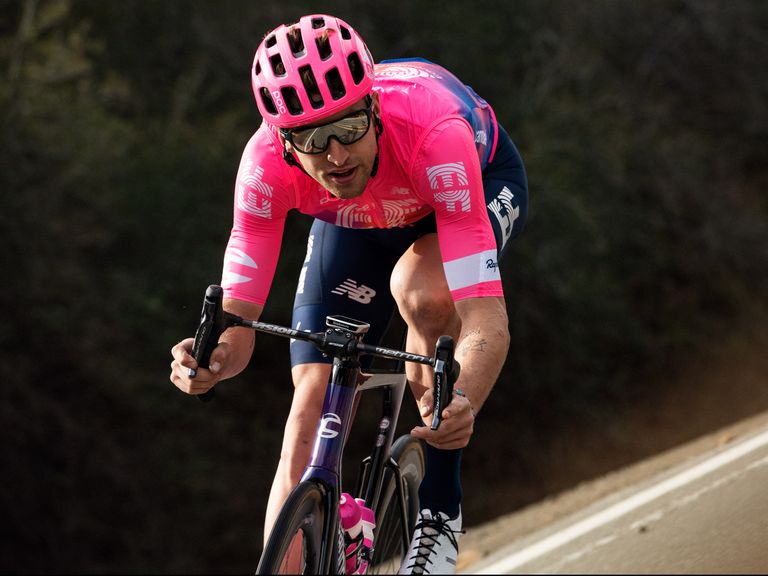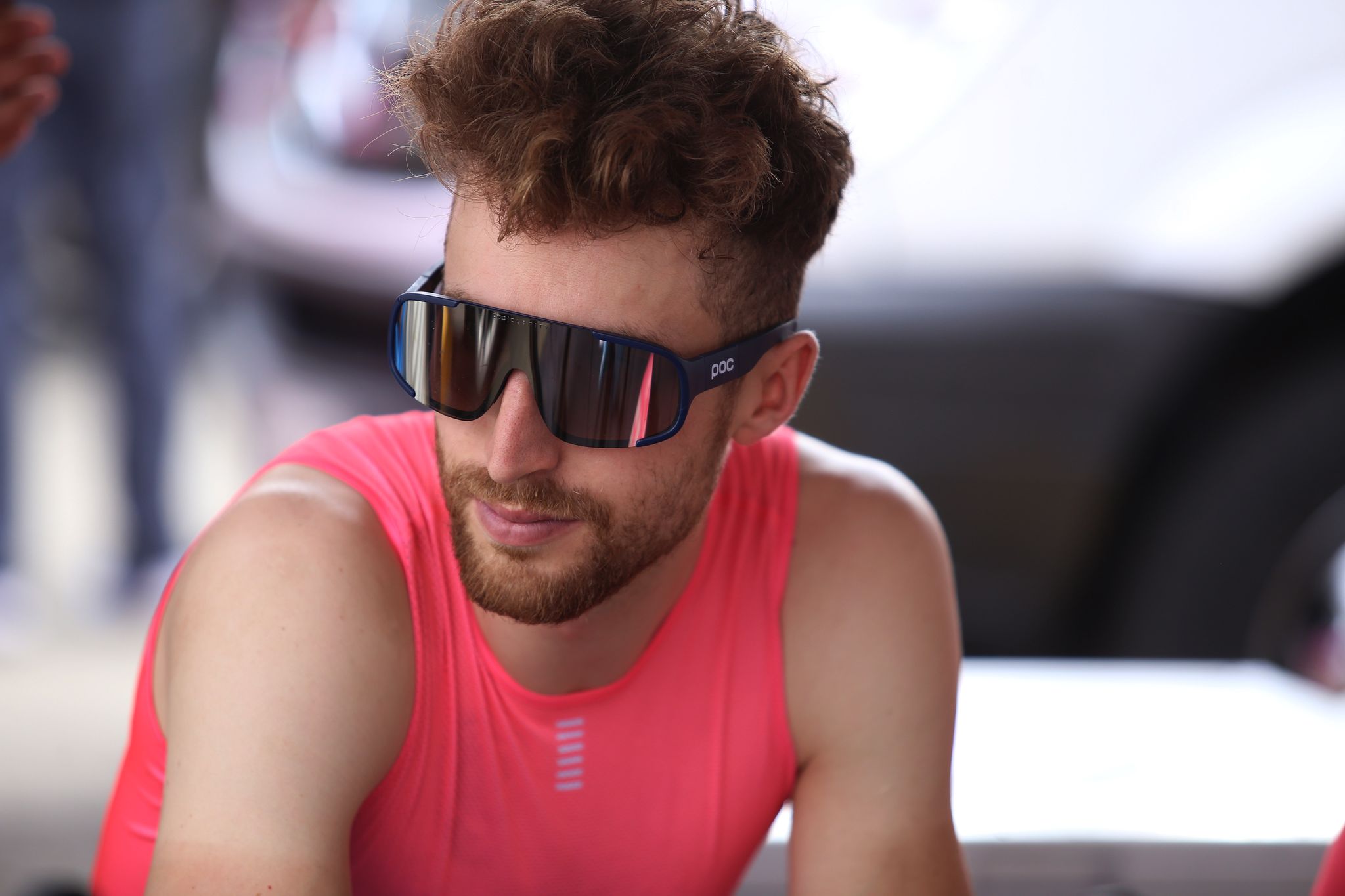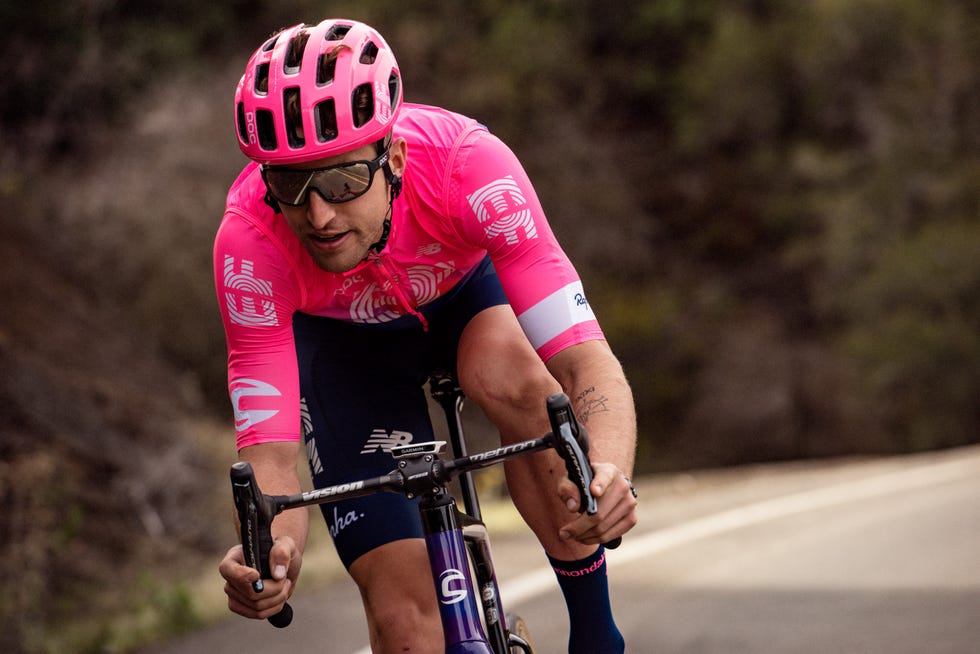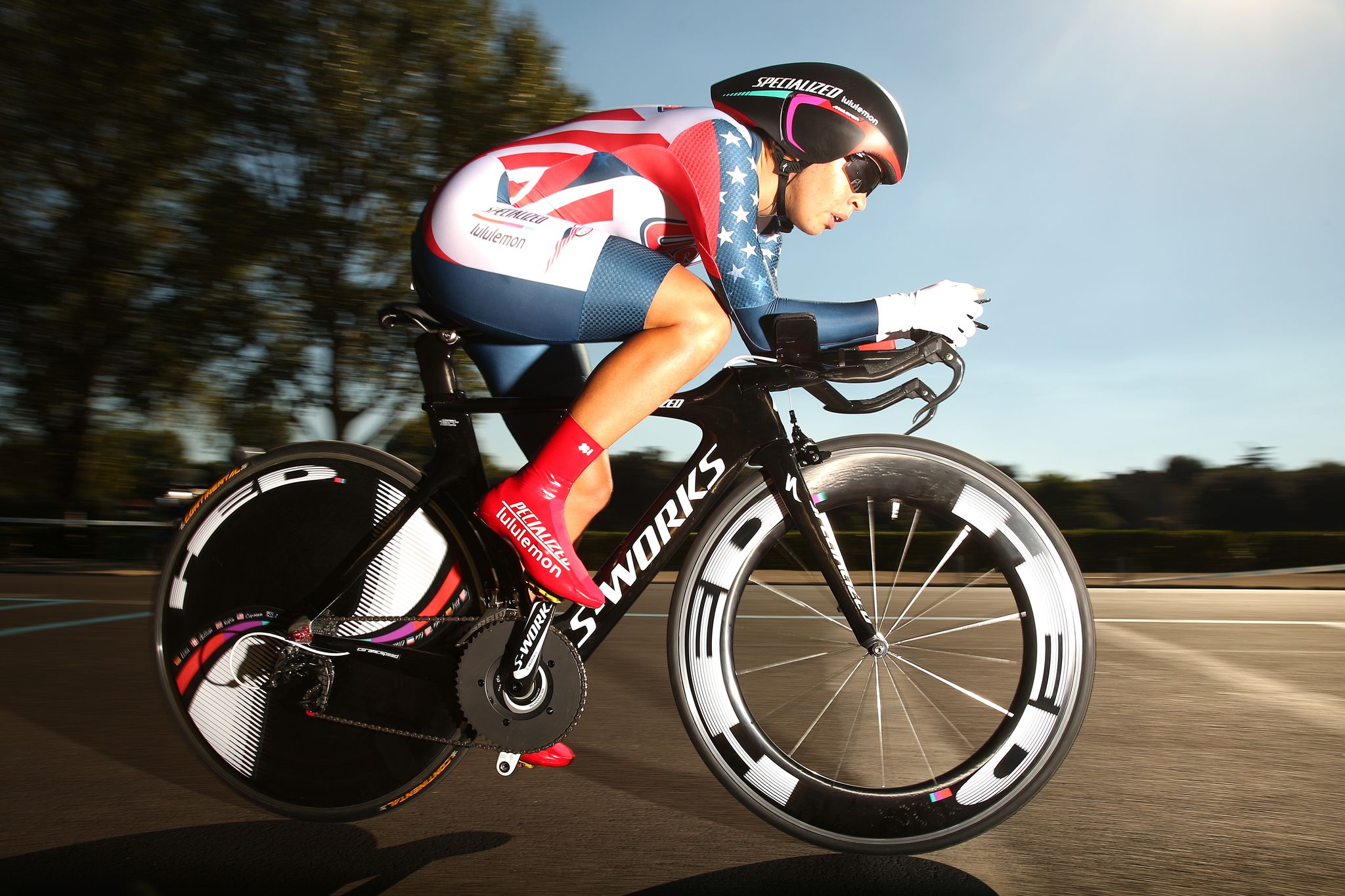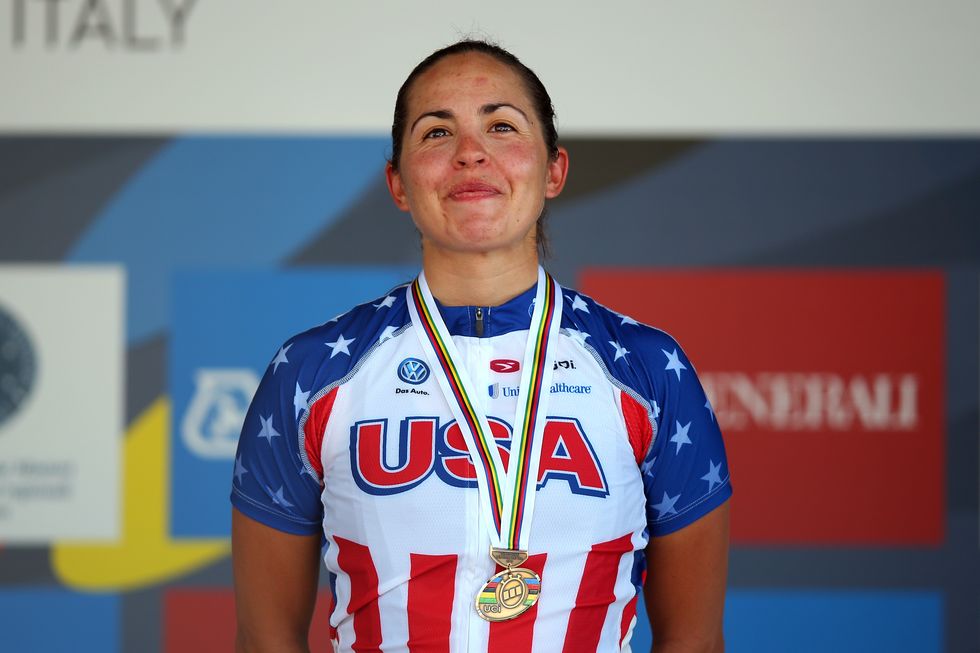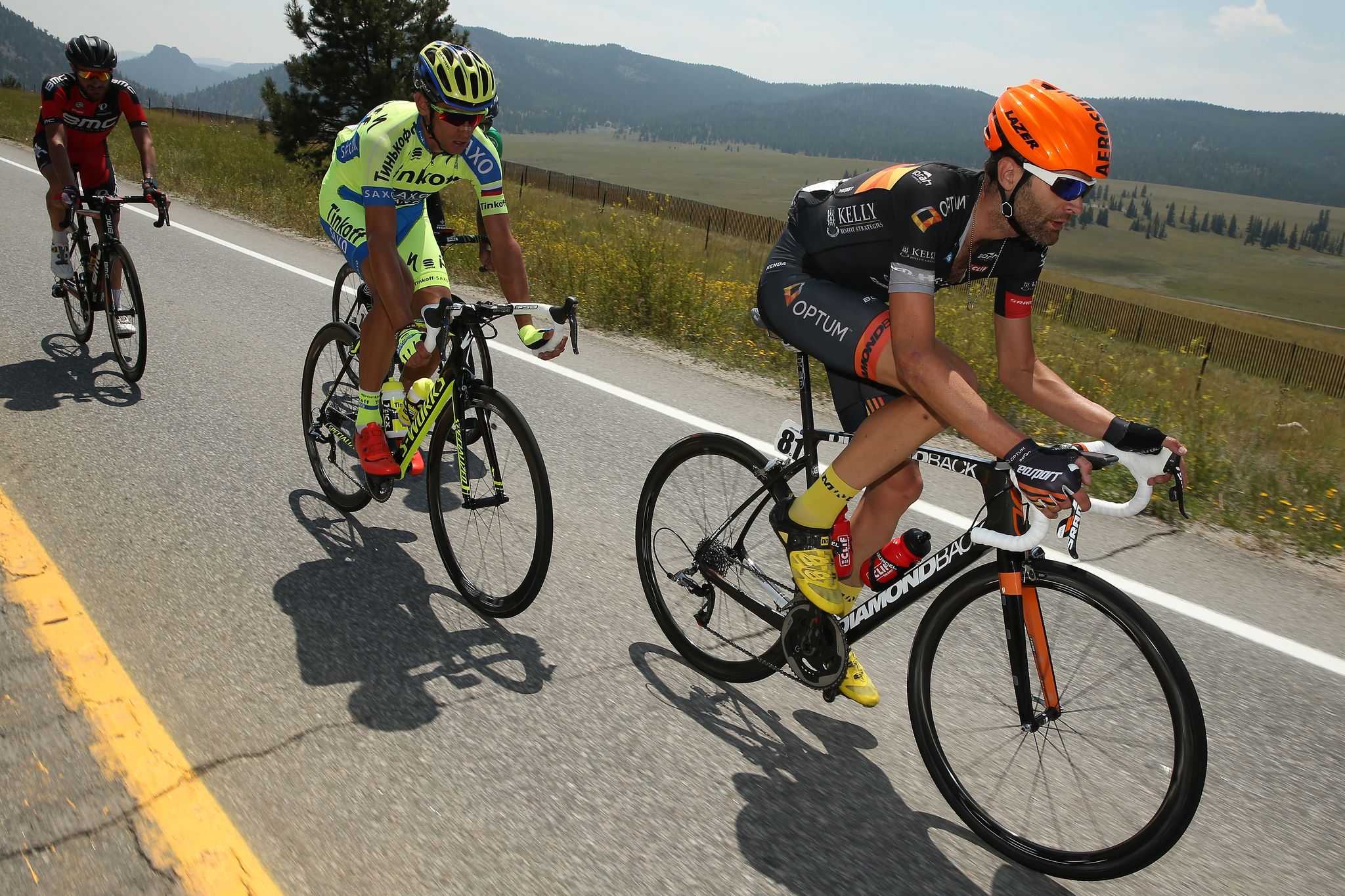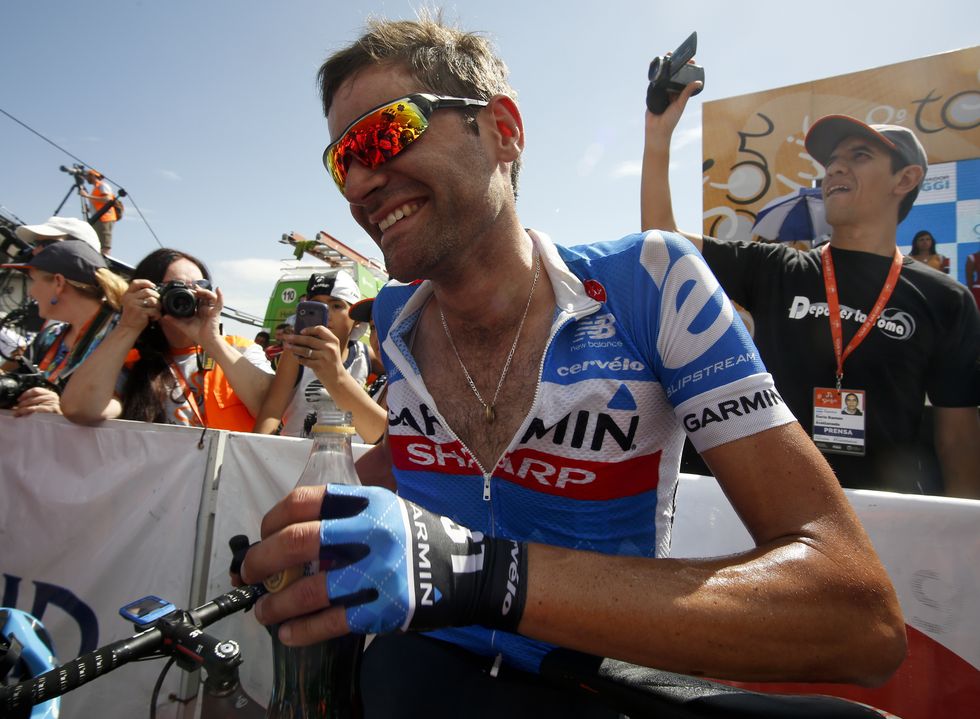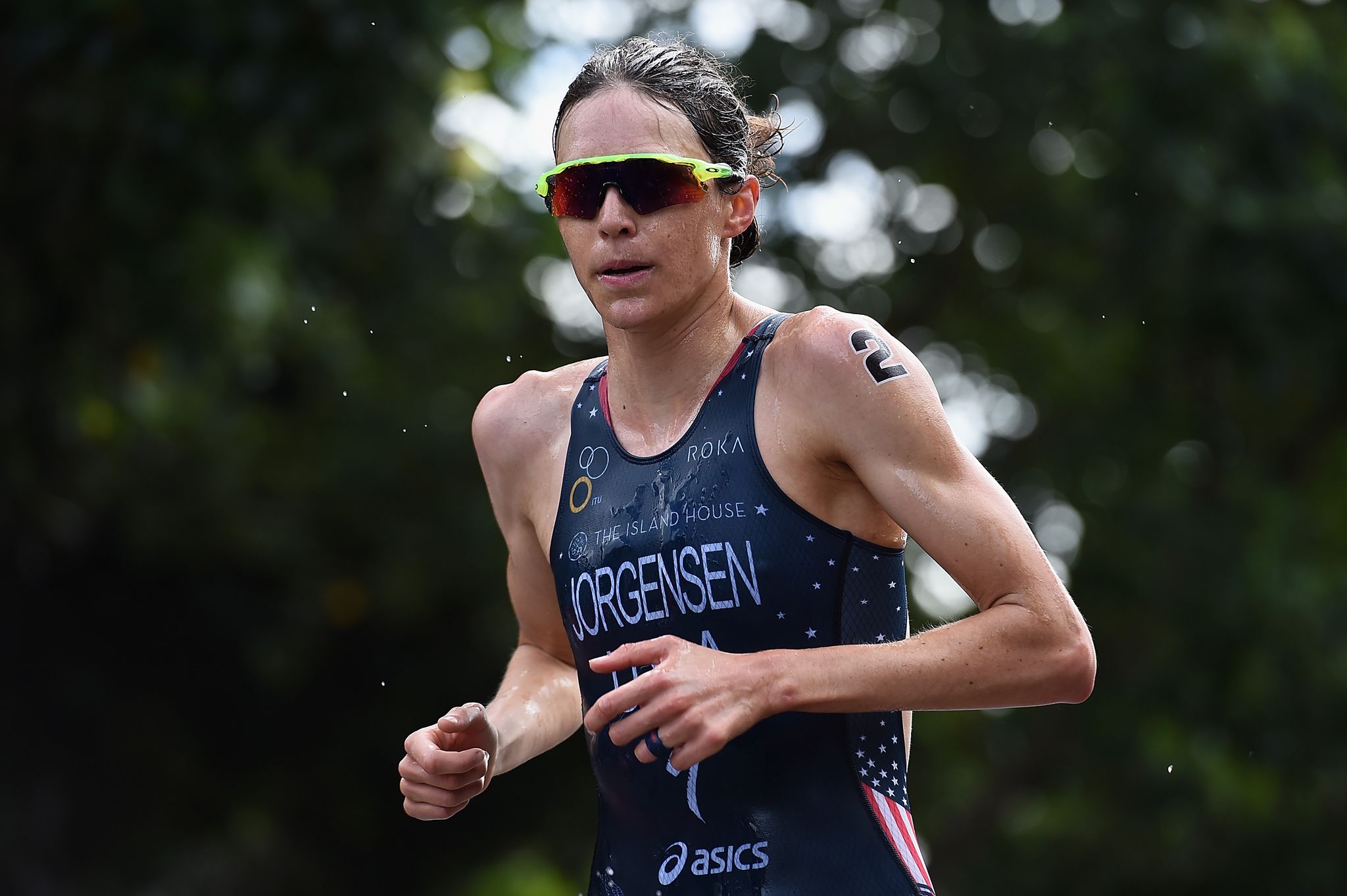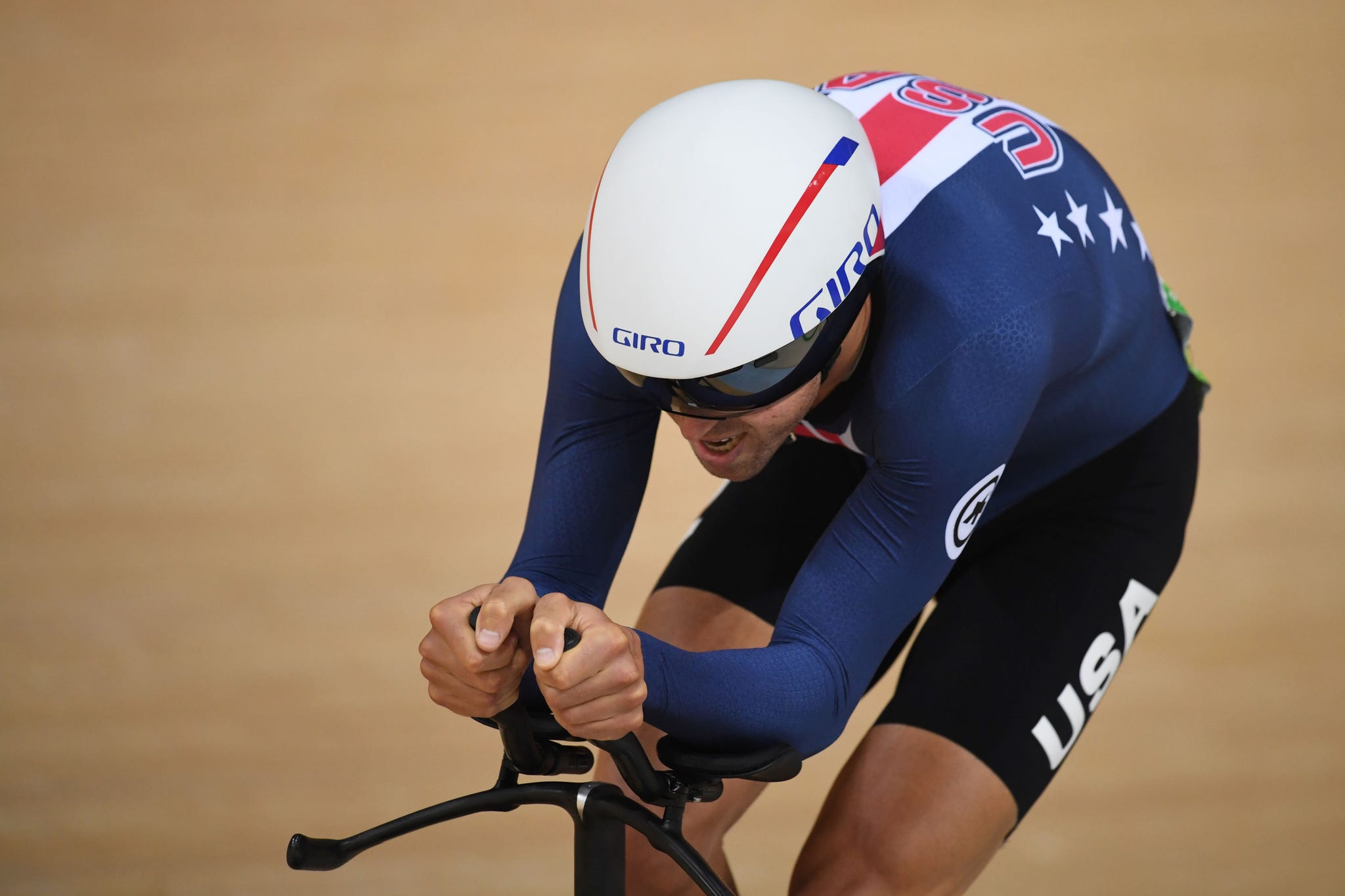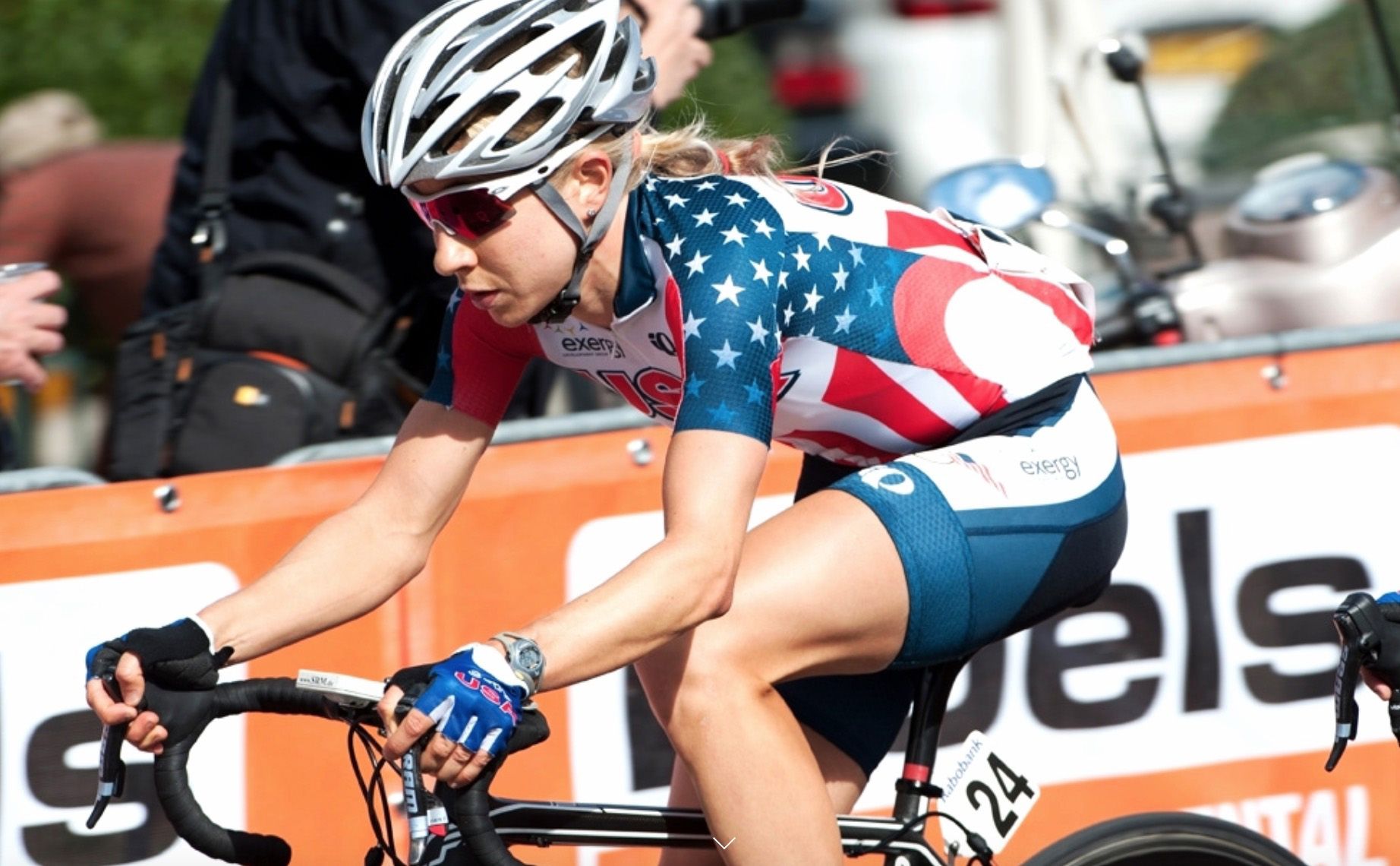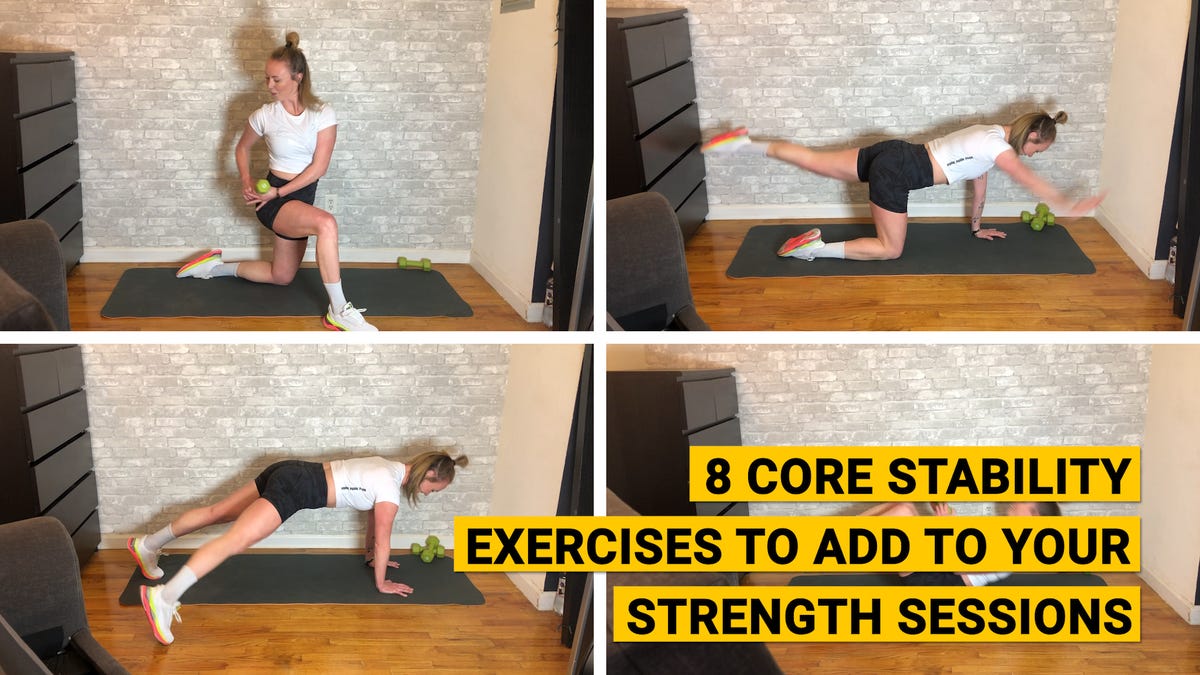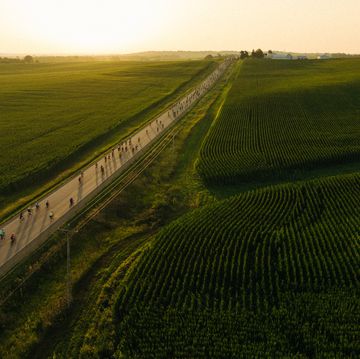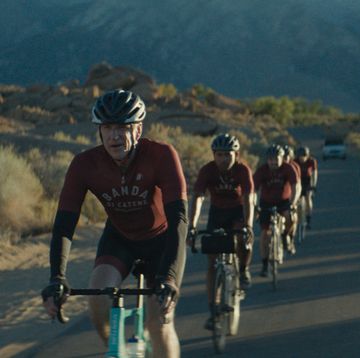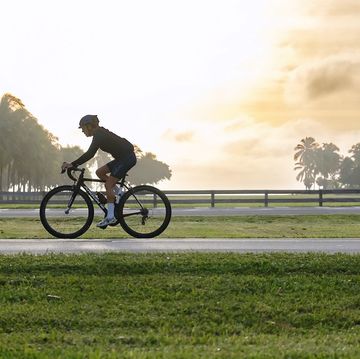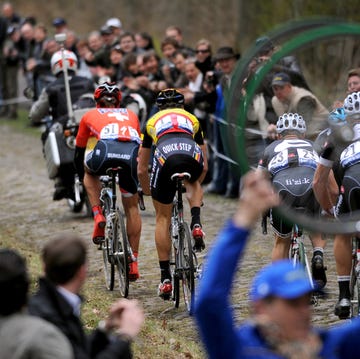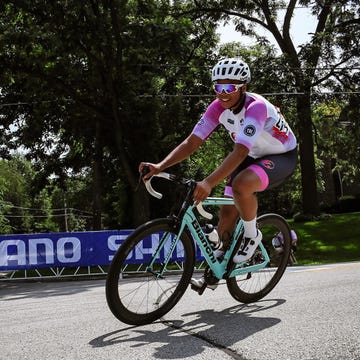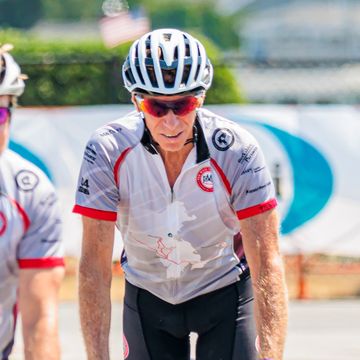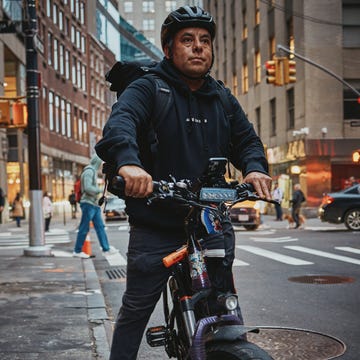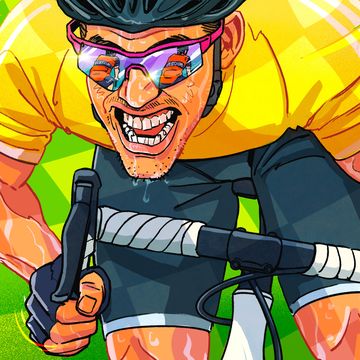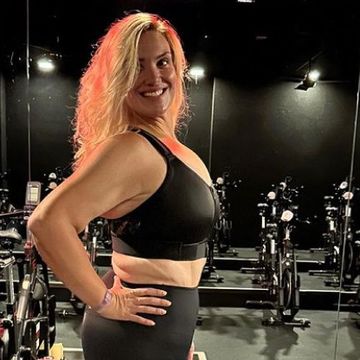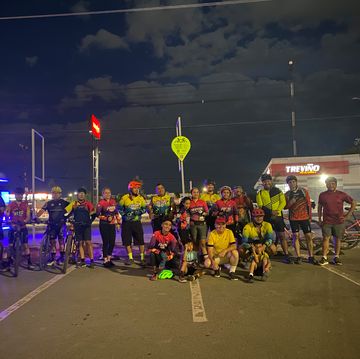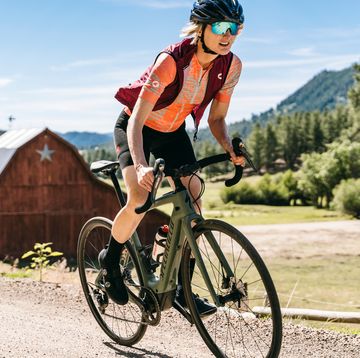October 10 is World Mental Health Day, a chance for raising awareness of mental health issues around the world and mobilizing efforts in support of the effort.
When former pro cyclist Phil Gaimon tweeted about his mental health struggles earlier this month after the news of 23-year-old Olympian Kelly Catlin's suicide began to circulate, he was shocked at the response. People reached out and said he’d inspired them to get help. "I contributed to the conversation,” he says. “The responses told me that it was sorely needed."
That pro athletes aren't immune to depression and anxiety may surprise some, but the road to success is often riddled with emotional turmoil. In addition to the unrelenting pressure to perform, athletes talk about a culture of invincibility, in which admitting weakness feels risky and maintaining a veneer of composure is paramount.
“We like to think we have everything in control because we deal with a lot of pain and suffering,” says two-time Olympian Taylor Phinney of EF Education First Pro Cycling Team. “But that doesn't mean that we’re able to interpret emotions better. Nobody tells you that, you know?”
Head injuries are often a common denominator among athletes grappling with mental health issues. Catlin’s family believes that her death may have been related to a concussion she sustained in a crash this past winter. These injuries can exacerbate feelings of sadness, irritability, and anxiety—and can have devastating consequences if overlooked or not managed properly. A 2018 study published by the Journal of the American Medical Association found that people with traumatic brain injuries like concussion are nearly twice as likely to die by suicide than those with no history.
Of course, anxiety and depression don’t discriminate between athletes at the highest levels and those who ride more casually. In fact, 44 million people in the U.S. experience mental health issues in a given year, according the the National Alliance on Mental Illness. And the stigma surrounding it can keep people from seeking help. Only 41 percent of U.S. adults with a mental health condition receive treatment; and tragically, suicide is the second leading cause of death for people under the age of 34 in this country.
Unlike the pros, the average cyclist probably isn't grappling with depression or anxiety in direct relationship to the circumstances of their cycling lives. In fact, cycling and other aerobic activities are known to be therapeutic for people with mental health issues. But none of us is immune, and because the pros represent a certain kind of success in the pursuit we all share, when they go public with their struggles, it has a way of making the rest of us feel more comfortable opening up about our own.
We gathered candid accounts from six pros about the challenges they’ve faced—both past and present. (According to the American Psychiatric Association, about half of people with mental health issues like depression are likely to experience a recurrence at some point in their lives.) The stories are raw and powerful, and reveal a vulnerability rarely seen on carefully curated social feeds or in post-race interviews. Although their experiences are unique and aren’t meant to be compared with Kelly Catlin’s, they’ve shared their stories with the hope that others who are suffering will feel less alone and will be empowered to reach out for help.
TAYLOR PHINNEY, 28, is a professional cyclist for WorldTour team EF Education First Pro Cycling. He is a three-time Olympian, and multi-time national and world champion on the track and road.
When I was in my early 20s and relocating to Italy to start the racing season, I’d find myself crying alone in my room. I’d gone from being around my family and friends all the time to committing to this pretty intense sport. It was lonely and isolating. But I definitely wasn't sharing that with anybody because there's a level of hardness you think you're expected to have to be a "great champion." I thought this was how it was supposed to feel, and that I just needed to drink more espressos.
The track was especially difficult, which is why Kelly’s situation resonates with me. You're just cranking out laps and exploring how much you can hurt yourself. You're not discovering new places, you’re not in the sun. And there's not a lot of infrastructure in that program to turn to if you're struggling. I was 17, 18 years old and remember the pressure of the competition being really, really intense. I felt totally trapped within this bubble.
Again, I thought that's how it was supposed to be because I never read about anybody saying that they weren't enjoying themselves. Every interview was like, “I'm really excited about this and I can't wait to go to Worlds.” Meanwhile, you're facing all the doubts and you're facing them alone.
After my crash [at 2014 Road Nationals where Phinney sustained a career-threatening compound tibial fracture], I finally had to disconnect from the cycling world. Once I cut that tie, I immediately felt so much better and grateful to be able to step away from this bubble that had consumed my mental and physical existence for my entire adult life.
I think my lowest moment was probably after I came back, and we won the World Championships team time trial with BMC in 2015. I just felt nothing. I'd worked really hard to make it back to this point, and it was something that I had wanted to win for a really long time, but I was like, “Man, I feel numb.”
So I had this second realization of, “Shit, maybe this idea that I've had my entire life of winning races and being World Champion, it’s not actually going to bring me happiness.” That’s when I started meditating. I was like, “I have to do something otherwise I'm going to lose myself.”
It was really hard at the beginning just to sit and be with myself, but the harder it was the more I realized I really needed to cultivate something within myself, a foundation that I can touch back on so that I don't feel so lonely. I also started creating art and making music. I’ve been racing my entire adult life, but now I have this whole other side that I didn't know was even in the cards for me.
I wish that I’d been able to read something like this when I was going through something similar, that somebody I looked up to had also experienced this. People need to know that everybody struggles. It's not a form of weakness, it's actually a form of really great strength. And recognizing that we all share pain can be a way for us to connect with each other.
CARMEN SMALL, 38, is a retired American professional road cyclist, two-time national time trial champion, and directeur sportif for the UCI Women’s WorldTour team Virtu Pro Cycling.
I didn't know Kelly Catlin well. Our times on the [USA Cycling team pursuit] overlapped slightly, but I observed her growing as a cyclist from 2013 World Championships on, and was always impressed by her determination, raw talent, and most of all her accomplishments outside the sport. She was a soul that was taken too early.
I just had my two-year anniversary from my concussion, a day that changed my life. I went from a thriving professional cyclist to trying to get back to that place to realizing it won't happen, to acceptance and, at last, to moving forward. This journey is not easy, not because I don't like what I am doing now, but because I didn’t stop [on my own terms].
And I’m different now. I have anxiety about everything, I cannot deal with stress, I am overly emotional, I am sad all the time, I am irritable, I have trouble with noise, driving makes all this worse (not the best in my profession), and the part that is the hardest is I have a fucking headache every day. I'm screaming on the inside and looking fine on the outside. I get comments all the time, “Oh, you look great. How are you?” I just normally say, “Yeah, doing well thanks. You?” mostly because I am sick of explaining two years later that I still have problems with this damn concussion.
I am frustrated, I get depressed, and I hate my life most days, but I put on a smile and head out to do my job and act "normal." It's easy to do because as an elite athlete you put this face on a lot. Your body hurts, you get on with it. Training is hard, you get on with it. Racing is even harder and you find a way to finish it off. You constantly tell yourself it's just pain and you will be fine because you love the sport, you love the competition, and you will do what it takes to win.
I'm sorry for Kelly, I am sorry for her family and friends, and it makes me sad to know she was going through this. Concussion or not, life is fucking hard and mental disease is a very real thing that no one wants to talk about, especially as athletes. I'm not saying the concussion was the ultimate change in her but I know for myself I am a very different person post-concussion than pre. No one wants to talk about it, insurance companies don't want to pay for you to get help, and people are really hurting inside. If this was a broken arm or leg that wasn't healing, people would look at it a lot differently.
I mostly don't talk about it because I get annoyed with people saying, "Have you tried this or that?" Everyone I speak to is slightly different, what helped them doesn't necessarily help someone else. I have tried so many things from homeopathic to western medicine, but I have not found [a solution]. I don't know what is next for me, but I thank Kelly’s dad for writing [the memo documenting her emotional decline] to maybe open some minds about concussion and preventative care. We need to change this because sport is just sport and our lives are dear and valuable.
PHIL GAIMON, 33, is a retired road racer. He is the author of Draft Animals and Pro Cycling on $10 a Day, and chronicles his cycling exploits on his YouTube show “Worst Retirement Ever.”
I’ve dealt with depression on and off my whole life. In seventh grade I would tell my parents that I had a headache. I missed more than 30 days of school that year. I didn't know what was wrong with me. I just didn't want to do anything.
It hit me again after college. I had always dreamed of racing my bike professionally, but three years in, I wasn’t getting results and was patching together side hustles to pay the bills. Then I moved with a girlfriend to Baltimore. Looking back, I think I had seasonal affective disorder. I’m from Georgia. Cold weather doesn't work for me, snow doesn't work for me, riding a trainer doesn't work for me. My best therapy was being outside and being able to ride my bike. After one blizzard too many, I had to leave. I put all my stuff in my car and went back to Florida where I’d gone to college.
And then my dad was diagnosed with cancer. It was just bad. I remember a few weeks where I averaged like four hours of sleep a night. I would wake up in the morning super early with my mind racing. That was the first time I went to see a therapist.
Medication didn’t work for me, so we focused on strategies to deal with anxiety and sleep. One thing that worked was this idea of “zooming out” or not focusing on the little things. Like if my last race didn't go well, I would try to recognize that I did win 12 races this year so I’m not going to ride that emotional rollercoaster. I also worked on training myself to identify what things would stress me out at 4 a.m. and try to make sure those were done the day before.
That definitely helped, but when you're a pro athlete, you always have anxiety. I was never on a team for more than one year, I was always just trying to stay afloat. In 2015 I was moving back to Europe again to race with a WorldTour team that I knew would fire me no matter what, even if I did a good job. And it only got worse: My dad died and I had a really bad breakup. That was the low point for me depression-wise. I remember thinking, “There is an out here, which is that I no longer exist as a human.” But very quickly I thought, “My mom's gone through enough. I'm not gonna put this on her too.”
That was what kept me from it. And therapy. And trying to think big picture. And I think my friends saw it, and leaned into me a little bit, just invited me to do more things. At first, my instinct was to say no. But once I’d get out, I was always glad I did.
Even after I retired in 2016, I still have bad days. I spent a decade chasing success as a pro cyclist, something I must have known deep down was impossible. It was traumatic, and I'm still getting over that. But not racing anymore has helped.
I only realized five or six years ago that those headaches I had as a kid were depression. I just didn't know what to call it. After I read about Kelly Catlin’s suicide, I tweeted about my experiences. I was shocked at the number of responses I got thanking me for putting it out there. You never know when people might need to hear they’re not alone.
GWEN JORGENSEN, 32, is an American distance runner, two-time ITU world champion, and a two-time Olympian who won gold at the 2016 Rio Games in triathlon.
I've struggled a lot emotionally at certain times in my career. One was when I qualified for my first Olympics, in 2012. I felt like I didn't deserve it.
I felt bad because I had just started the sport two years before, and people had been focusing on the Olympic Trials and the Olympics for four to eight years. I didn't even know triathlon was an Olympic sport four years prior. I felt like maybe I'm not actually a triathlete.
I thought I heard people saying things like, “She's only a runner. She qualified on the running course.” I took it personally and it made me feel like I had no self-worth. It killed the joy of the sport. It was really hard to overcome.
At that time, I shared how I was feeling with a coach who had a psychology background, and he said, “You don't have to go to the Olympics. This is your choice.” That was a revelation. Somebody else told me, “You may not have been training as a triathlete your entire life, but you have been swimming and running your entire life. You've been NCAA All-American.” It helped me re-believe in myself, that I was capable, and I was deserving.
What I've also come to realize is, people remember your good races way more than they remember your bad races. If you get 20th, no one remembers. If you win, people remember. That helped me a lot, just realizing people don’t judge you based on how you perform. I think that's really hard, especially for young females, to overcome.
I really struggled with that when I was younger. I felt like if I had a bad performance, I was a horrible person. Then I'd not only perform worse, but I'd be depressed, and I'd think other people didn't like me. The biggest thing I had to do was just realize that people don't care what your performance is.
I feel like everyone needs a person to share with, someone they trust, who's looking out for their best interests. For me, that person is my husband, Pat Lemieux. Some people see asking for help as a sign of weakness, where I see it as a huge sign of strength. Nobody wants to show weakness, right? Especially as an athlete, a lot of us are type A. Everything's perfect. Everything's clean. Everything's organized. You feel like you have to live this perfect lifestyle, and that if you can't do it all by yourself, you're a failure. I don't believe that's true at all.
BOBBY LEA, 35, is a retired professional road and track cyclist, three-time Olympian, and multi-time National and Pan American champion. He is a test editor at Bicycling.
My training superpower was that I could hurt really bad, and I could do it all the time. But this strength left little room for emotional issues. When shit got real, I was unprepared to handle it.
In September 2015, I received news that I’d had a positive drug test at track nationals in August. That was probably as close to the proverbial walls caving in as you can come.
[The test was positive for noroxycodone, a metabolite of oxycodone found in Percocet. Lea admitted taking it to help him sleep the night before his last race at nationals, forgetting to check if it was on the banned list. He was given a 16-month suspension, jeopardizing his bid for the 2016 Rio Olympics. Lea appealed to the Court of Arbitration for Sport, which reduced the ban to six months.]
I didn't even realize my mistake until I read the notification. Rules are rules, and I was ready and willing to accept an appropriate sanction. There were definitely people who thought I was the worst of the worst. But I knew I had not intended to cheat; I had just made a really stupid mistake.
With Rio still a slim possibility, I had this idea that I could train my way through the suspension all winter, bury it, mask it with a different pain. A battle with situational depression as a teenager taught me that if I just keep moving forward, eventually the situation is resolved and things get better. I thought I could just push through it as hard as I could, and in time all would be right again. But it wasn’t sustainable. I'd feel really bad for myself. I’d have big emotional breakdowns, crying for an hour or two. I'd get obscenely drunk, recover for a few days, and then dive right back into it.
In hindsight, that would have been a good time to seek treatment, but I viewed happiness as a luxury. There just wasn’t room for that. When you're an athlete at that level, control is what you live on. We do our best to micromanage the hell out of everything. As soon as you lose control it's terrifying. My family was there for me, but I could see that my situation was taking a toll on them as well. I knew I wasn't the only one fighting my fight, and I didn't want to pile on more of a burden with the depths and details of my emotional struggles.
When the suspension lifted in March 2016, I was free again and I ended up going Rio. My plan was to retire after the Games, but again I was unprepared for that reality.
Once Rio was over, I was just kind of floating. I was in my mid-30s with the work experience of a high schooler and the salary needs of a normal adult going, "How do I find my place in a world that has been moving on without me?" I tried getting my real estate license, then my insurance license. I had really miscalculated how challenging this time would be. I no longer knew what my identity was. I thought I needed to find my place fast, and when that didn’t work out, it was an emotional blow. It took time for me to adjust to a different speed. Now two and a half years into retirement, I'm slowly finding my place in the world, and I’ve made peace with the fact that that my time as a pro racer was great, but it won't come back.
People talk about the poker face in sports, but it’s so much more than not showing pain on the bike. You have this idea that you're not allowed to show weakness anywhere. It becomes a liability. I think the reality is that our individual issues might be different, but we're all in this one together, we're all fighting something.
ANDREA DVORAK, 38, is a retired professional road cyclist who now runs the Virginia chapter of the National Interscholastic Cycling Association.
I made it through my eight-year professional road career without any major injuries. Since then, I've turned my focus to mountain biking.
In December of 2017 I face-planted onto a rock while riding off a drop and was unconscious for more than 20 minutes. I have no memory of the crash. The doctors told me my injury was well beyond a concussion: I had a brain bleed in three places and I sheared some of the nerves that connect the two hemispheres, which can result in permanent brain damage.
I wish I had known more about what to expect after a traumatic brain injury. But I was discharged from the hospital with almost no information on how to deal with the emotional hurdles, the personality changes, and the insecurities. The next three months of my life were hazy, and I felt helpless and embarrassed to talk about it, to come across as crazy. I know it could have been a lot worse, but I’ve had some really bad days where I've said to myself, “I wish I had died on that rock."
I used to pride myself on my memory. It's what got me through law school and allowed me to pass the Virginia Bar Exam. I would remember even the smallest details about meetings, all movie titles, names, et cetera. Now I struggle with that. I’ve also become more emotional—I have more lows and the highs aren’t as high. I get upset over things that shouldn't leave me in tears, and things that used to give me joy don’t as much.
All these things affected my overall sense of self. Before the injury, I was a confident person. I was comfortable in my own skin. Now sometimes I question all this.
I just want people to know that you can get help and it will get better. I finally started seeing a psychologist last summer and she encourages me to focus on the positives. I have a pretty amazing life. I have a supportive network of family and friends. I work at a school where we have a cycling program with 30 kids from all levels, and I run the Virginia NICA league. When I work with them, it’s my best therapy. I think about what it would have been like if I had just disappeared. But it helps me to know that I can still make a difference for these kids, and that keeps me moving forward.
The National Suicide Prevention Lifeline provides 24/7, free and confidential support for people in distress, as well as prevention and crisis resources for you or your loved ones. Call 1-800-273-8255.
